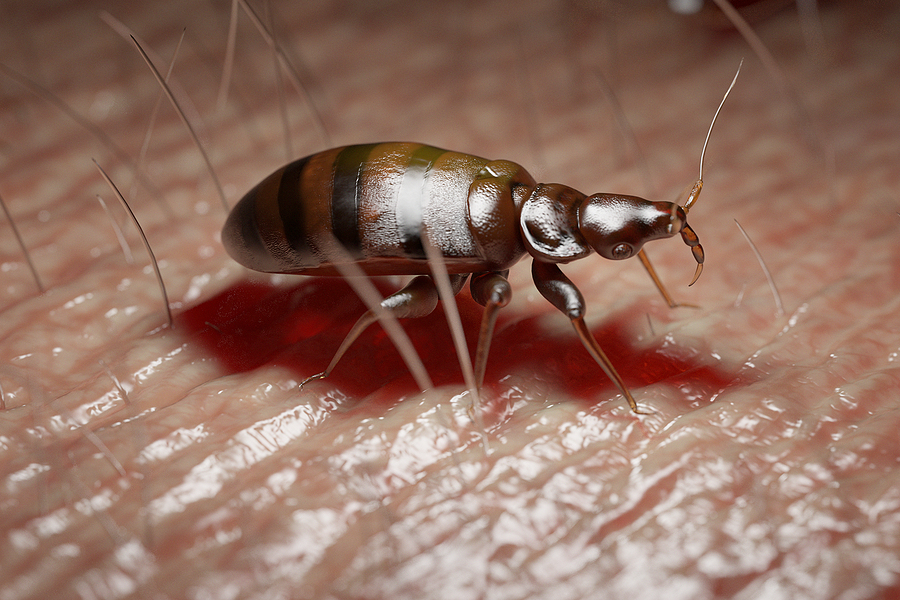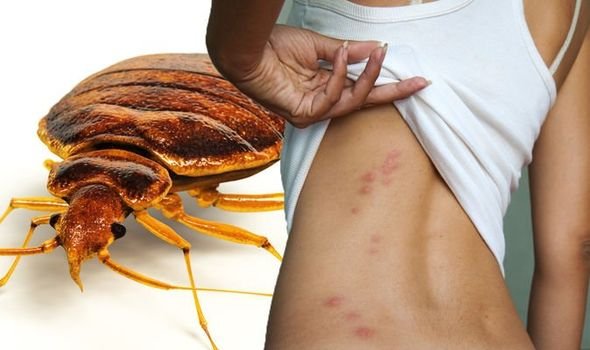Insect Control Services Demystified: The Scientific Research Behind Getting Rid Of Insects and Pests
Behind the apparently regular task of getting rid of insects exists an interesting world of clinical principles and methodologies that drive the procedure of bug management. From comprehending the intricate behavior patterns of parasites to using innovative modern technologies for their eradication, the realm of insect control runs on a structure of expertise that expands much past merely getting rid of unwanted intruders.
Insect Habits Analysis
Taking a look at bug habits is vital in establishing efficient insect control methods for both domestic and industrial setups. By understanding the habits and patterns of insects, insect control experts can implement targeted and reliable solutions to eradicate invasions.
In addition, examining pest behavior helps in determining the most suitable techniques of insect control. Different bugs might need various techniques, such as baiting, trapping, or chemical treatments. For example, understanding that a particular type of bug is primarily energetic at evening can aid in scheduling treatments for maximum efficiency. Generally, a complete evaluation of parasite behavior is necessary for creating tailored pest administration strategies that are both eco-friendly and very reliable.
Integrated Bug Monitoring Strategies
Integrated Pest Management Techniques involve thorough techniques that utilize a combination of preventive actions, organic controls, and monitoring to efficiently handle pest populations. Safety nets aim to get rid of elements that attract insects, such as food and water resources, by carrying out appropriate sanitation practices. This consists of sealing splits and gaps, repairing leaks, and storing food in closed containers. Organic controls entail introducing all-natural killers or parasites to manage pest populations, reducing the need for chemical pesticides. Releasing ladybugs to prey on aphids in a garden is an usual biological control technique. Surveillance plays a vital role in Integrated Insect Monitoring by on a regular basis inspecting and identifying pest populations to establish one of the most ideal control methods. By utilizing a mix of these methods, bug control services can reduce the ecological influence of insect administration while successfully decreasing pest populations in a sustainable way.
Eco-Friendly Pest Control Solutions

With a focus on sustainability and ecological consciousness, eco-friendly insect control options use an all-natural and reliable choice to traditional chemical pesticides. These techniques focus on the usage of non-toxic components originated from plants, minerals, or various other organic resources to battle parasite infestations without causing harm to the atmosphere, people, or non-targeted varieties.
One preferred environment-friendly strategy is organic parasite control, which involves presenting natural killers, bloodsuckers, or virus to manage this post pest populaces. By utilizing the power of nature's very own checks and balances, this method can effectively regulate bugs without the need for harmful chemicals. In addition, organic pesticides stemmed from plants like neem, pyrethrum, and garlic have revealed pledge in warding off or eliminating bugs while remaining secure for useful insects and pets.
Additionally, eco-friendly bug control solutions usually focus on safety nets such as securing entrance factors, eliminating food and water resources, and maintaining correct cleanliness to deter parasites from infesting buildings. By incorporating these sustainable techniques, parasite control services can properly get rid of pests while minimizing ecological influence.
Function of Technology in Parasite Elimination
Modern innovations in innovation have actually transformed the area of parasite removal, enhancing the efficiency and effectiveness of bug control solutions. One of the vital technical devices in pest control is the use of remote surveillance tools, such as cameras and sensors, which help in identifying bug hotspots and monitoring bug motions.
Moreover, the development of green chemicals and lures that are much more targeted towards specific parasites has actually been enabled through technical innovations. This targeted technique minimizes the general use chemicals, reducing ecological effect while effectively taking care of pest populations. Additionally, using drones for airborne surveys and targeted chemical application in hard-to-reach areas has structured bug control operations.

Significance of Routine Bug Inspections
Routine insect assessments are critical for keeping a pest-free setting and protecting against problems from holding. By performing regular inspections, residential property proprietors can identify bug issues beforehand, permitting for swift and targeted treatments to eliminate the pests prior to they replicate and spread. These inspections give a chance to identify possible entry visit factors where parasites can infiltrate the premises, making it possible for positive measures to secure off these gain access to points and protect against future problems.
Moreover, regular parasite examinations can assist secure the health and safety and security of passengers by guaranteeing that the atmosphere remains free of disease-carrying bugs and allergens. Early detection of parasites like rodents, roaches, or bed bugs can prevent health and wellness risks linked with their existence, such as allergic responses, contamination of food and water sources, or the transmission of conditions.
In enhancement to safeguarding human wellness, normal insect inspections are essential for maintaining the architectural stability of structures - ez commercial pest control service. Certain bugs, such as termites, can create substantial damage to wooden frameworks if left unattended. Via regular inspections, homeowner can recognize termite infestations early and carry out procedures to protect against pricey architectural repairs
Conclusion
